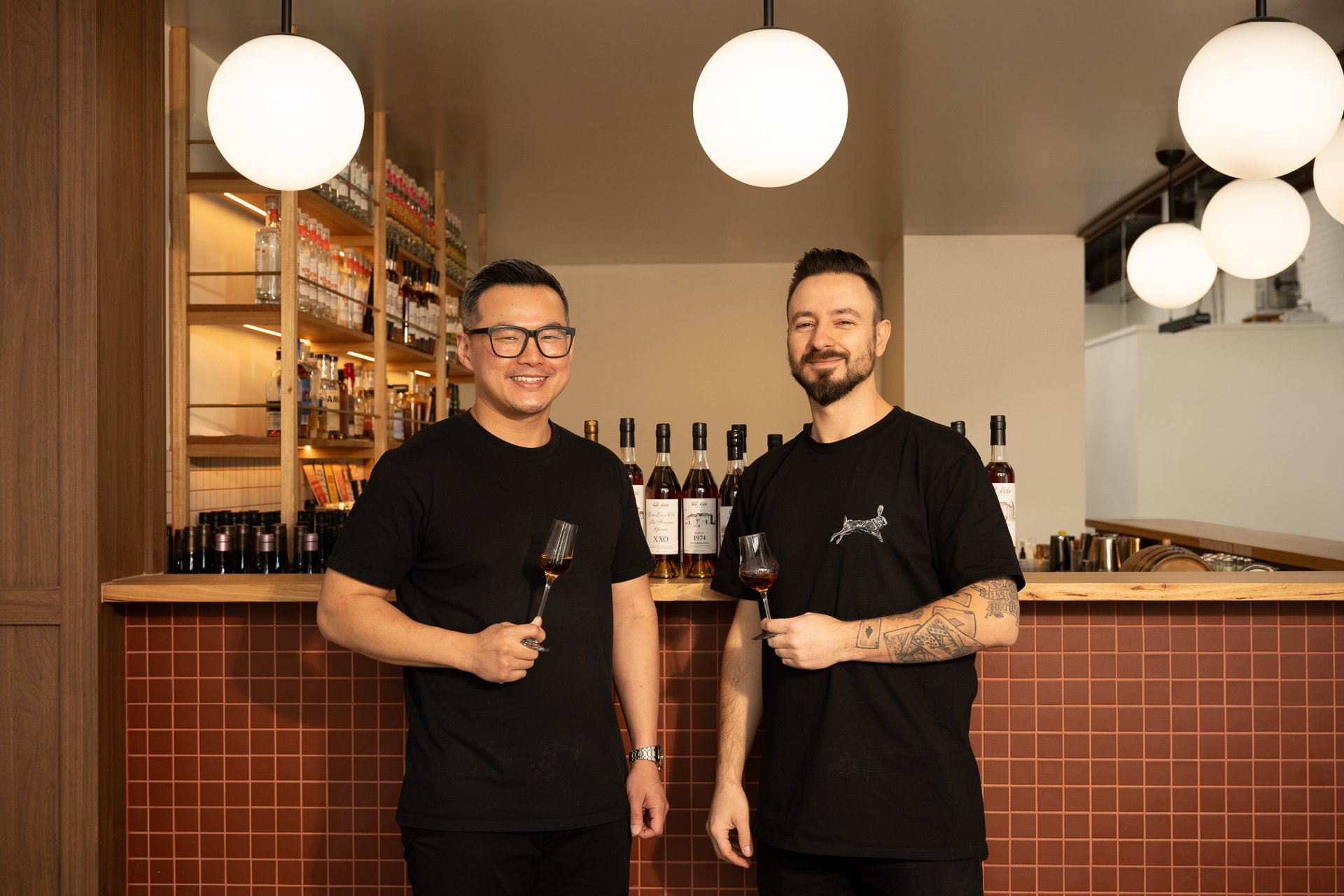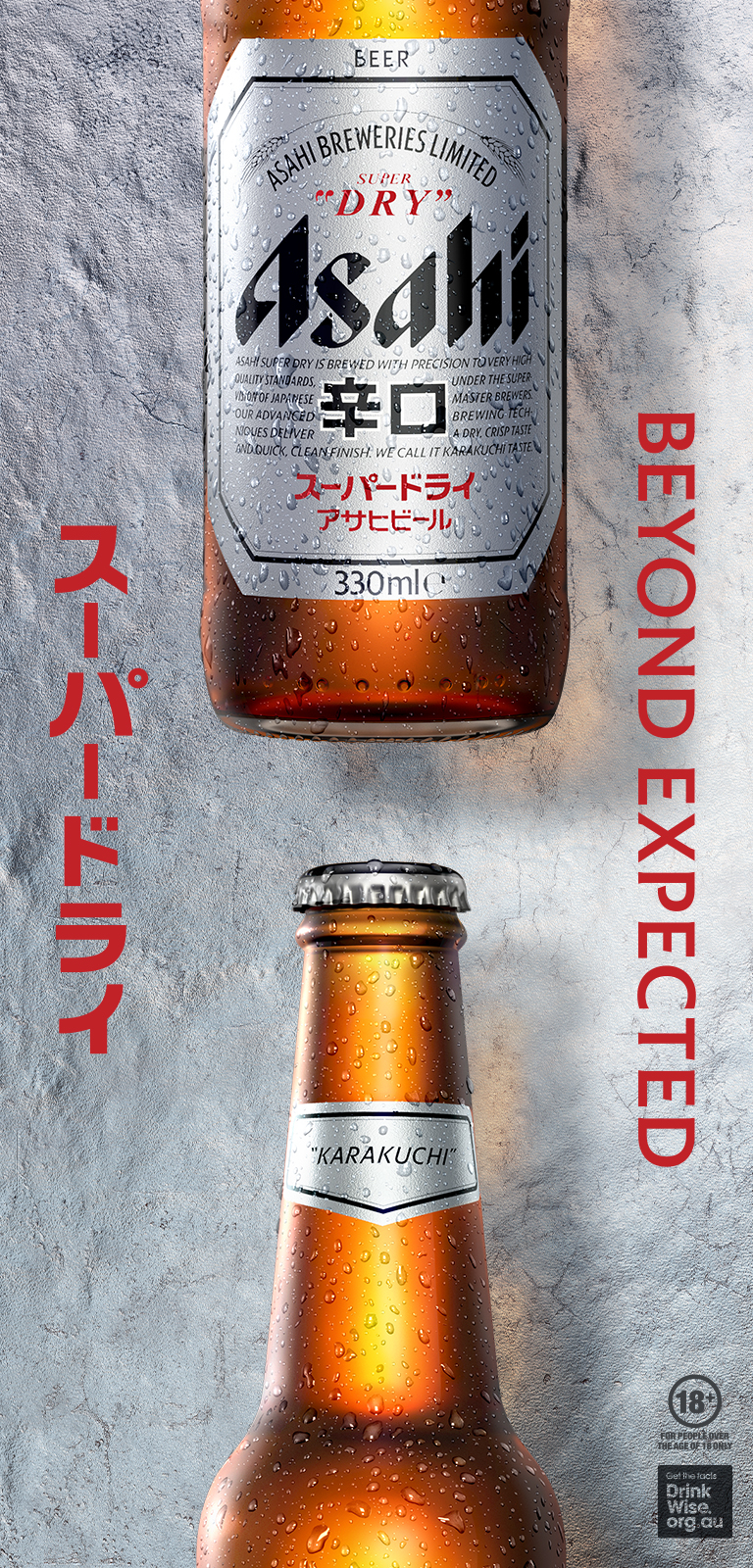Despite being recognised for producing world-class product, the Australian brandy sector has long struggled to achieve the popularity and demand of other spirits categories such as gin and whisky. The same holds true when honing in on imported brandy styles such as Cognac and Armagnac.
Drinks Trade recently caught up with Deni Kay, Co-Founder of Melbourne-based independent bottler Old Master Spirits, to discuss the unique positioning of brandy as a category that draws appeal from both wine and whisky consumers alike. This is what Kay thought:
Drinks Trade: It’s no secret that Cognac/brandy sales have been struggling for some time… Where do you see the category heading in Aus?
Deni Kay: If I talk to a probably more established market, America, we've seen whisky sales start to slow down. We've seen mezcal really start to rise, rum rose in the past, [and] we've seen brandy there a little bit. The difference in terms of people's drinking repertoire is that, with whisky, it can be used as a mixer as well.
I can't say to you that it will continue to grow in the mainstream, but I think what will happen - and I feel very, very strongly about this - is that consumers will probably go towards it because they want to try something different or because there's value there. I think that the nerds and collectors will because of the value proposition/because of the price that you see whisky climbing to, and the fact that, [with] Cognac and Armagnac, there are still gems out there for really, really ‘cheap’ I guess you could say in comparison.
I think that that's something that, sooner or later, will be too tempting for people not to pay more attention towards.
DT: What are the initial challenges/barriers in recruiting consumers to premium brandy?
DK: To begin with, people thought that it would literally just be sugar laden. People didn't really understand what Cognac or Armagnac was. A lot of the whisky drinkers, they had just seen, let's say, Hennessy, Courvoisier, Remy Martin, for example, like the big brands, and thought it was literally just going to be another sugar packed, really sweet drink that wasn't going to be complex… That was probably the first thing that we had to really communicate to them [around] what Cognac or Armagnac was.
DT: Does this make it a bit more of a hand sell?
DK: You hit the nail on the head. The thing with whisky (even if it's not Scotch, even Australian whisky) they're able to sell their product and it moves pretty quickly… They're established brands, it's popular, it moves, even when the price goes up. Brandy, not so much. If you were to speak to somebody and speak about Brandy and you ask them what is the difference between Cognac and Armagnac? I would say that most people would not be able to tell you.
DT: Deni, you’ve previously focused on recruiting Cognac drinkers from whisky… What have you found to be working/not working?
DK: There are similarities, obviously, between whisky and Cognac. So what we have done is we have reviewers that are first and foremost whisky reviewers that will review our product. So Serge Valentin from France, and then we've got a gentleman named Martin Eber, [Chief Writer at] Time for Whisky Hong Kong, and then also another gentleman here named Tim Grant. and he's got a blog called Peated Perfection.
What we thought was, if we can have someone who is well versed in whisky try our stuff [and] speak to whisky people about an alternative, well that's already reaching the sort of crowd that we want to, and hopefully from a voice that's not mine and a credible voice that they trust to tell them hey, this is really, really good. You should try it. And also it's really bloody well priced compared to what you can get in the whisky world.
It's not even [about] are they just going to buy Old Master Spirits: that probably won't be enough because we don't do enough releases with a large enough volume to be the only alternative that they go for. Hopefully what will happen is they will also try rum or different Armagnac or different Cognac, right? It's almost about recruiting them into the category of the subcategory, and I'm happy enough with that.
The thing that did work for us is that, when people did try it, they thought this is really, really good and then what would happen is they would share it with someone else and that person would say the same thing; and then I'd get an email going, hey, do you have any more of this? No, I don't. It sold out in five minutes when we released it six months ago. Good and bad thing is that everything has sold out very, very quickly.
DT: Old Masters Spirits sells bottlings of old, rare and unique single cask spirits… I’d have assumed that your consumer base would be relatively well-educated compared to other spirits retailers?
DK: You're probably right in the fact that I think our audience are probably more experienced than the average punter. They're probably, maybe not well-versed, but pretty decently versed in terms of different types of spirits. I think that they probably would still pour themselves a $60 or $70 whisky and maybe add some ice in it or something like that on a Tuesday night when they're watching Netflix or something along those lines, but yes, come the time to actually pour themselves something nice, this is something that they go for.
The other thing that doesn't work so well I think for the [premium Cognac/Armagnac] space that we play in is, if you look at the smaller houses that we work with and that premium end, and trying to bring out either vintages or lots… You have a few larger houses or larger brands that are probably driving that whole marketing and that educational piece and that is probably mainly more driven towards the Asian market with fancy decanters. If you say XO/XO Cognac, XO stands for extra old. Now it only needs to be 10 years or more to be bottled as XO. We've never even bottled anything that's close to 10 years. So if that's extra old, then what I'm bottling is ancient, right?
So yes, there are some consumers out there that they're versed, they're experienced, they know what we do. There are others that don't even know what it is. It's not in their world. They're not on the same page and they're not even the same library.
DT: Cognac/Armagnac is essentially distilled wine, and reflects terroir, climatic, and grape-varietal influences in a way that other spirits, such as whisky, do not… Do you feel grape brandy could be marketed to wine consumers as ‘something extra for the drinks cabinet’?
DK: I'd love to, and this is why we have [chosen] some [of the] high-end restaurants that we have our product in, because they have an amazing wine list. I know that people will appreciate it, and that is strategic… So in short, yeah: I'd love, I'd love for wine drinkers to be able to drink our stuff because I think that they would probably appreciate what it is, where it's from and the history of it as well.
DT: Do you feel the key marketing talking points are different when discussing Cognac/Armagnac with wine consumers vs whisky consumers?
DK: I'm not sure. In terms of our audience, we don't really have anyone that's at that level that you know will really hone in or chase stuff from that part.
Obviously Armagnac, completely different grape, completely different profile and distillation method, so we know that there are some people that prefer Cognac versus Armagnac. I've not really had anyone so far come to me and say well I prefer this cru compared to that cru in Cognac.
In terms of whisky drinkers and even brandy drinkers, I'm not really too sure that they're overly fussed about the crus, but on our website we speak about even the grape varietal, because we've had some Armagnacs that have had three different grapes that have been blended to make one single vintage. So then we will break down and say this is 35% this, 25% that and then we'll talk about that actual grape and what it is just as a bit of an educational piece for people.
DT: Would you ever consider adding an Australian brandy to your portfolio? Could this be a more attractive offer for new Australian recruits who may then go on to explore French brandy regions?
DK: I think that it might work the other way around for people. Because, in terms of accessibility, it's a lot easier for someone to go and get a [premium] French brandy than it is a [premium] Australian brandy... I think that people who might venture into Australian brandy are probably already versed in Cognac or Armagnac and then they want to try something different or they want to try something local or maybe they can't find somebody like an Old Masters Spirits/an independent bottler or a smaller ‘craft’ producer, then they might go towards an Australian brandy. I don't think that it would be the other way around quite simply because one is so much easier to find than the other, and the brands are so well known.
//
Recently, Drinks Trade published this article in which Deni Kay, Co-Founder of Melbourne-based independent bottler Old Master Spirits, outlined the differences between Cognac, Armagnac, and other brandies.
Share the content

